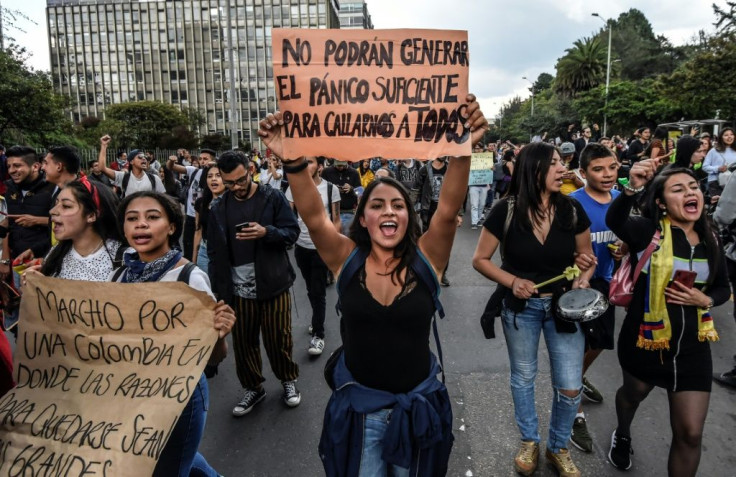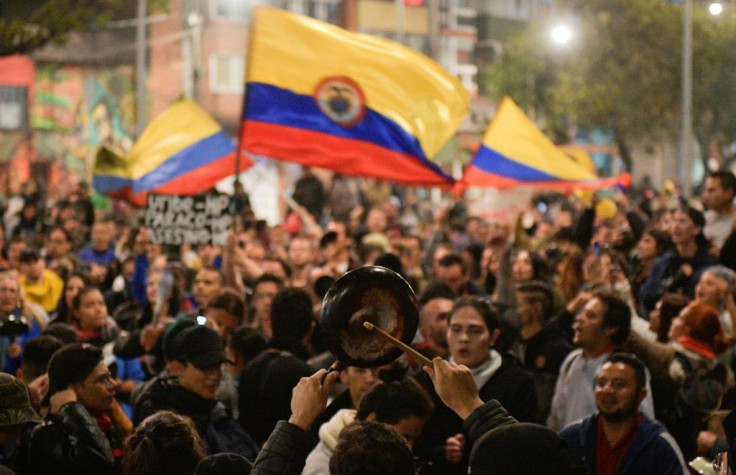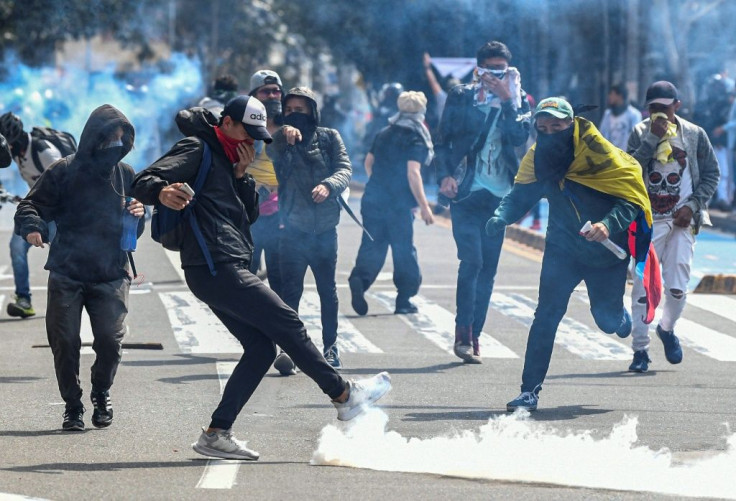Duque Opens Colombia Talks Following Protests: Official

Under-fire Colombian President Ivan Duque, the target of days of unprecedented anti-government protests, on Sunday opened a national dialogue aimed at assuaging popular anger, even as activists called for a major new protest.
Demonstrations continued in the capital Bogota, and in Medellin and Cali. While those protests were smaller than previous days, a major trade union called for a massive march on Monday.
Duque, a conservative who is deeply unpopular just 18 months after his election, "initiated the social dialogue" with mayors and other officials on Sunday afternoon, the presidency said in a statement.
Duque outlined "the progress and the challenges facing his government" and listened to the views of mayors on health, education, infrastructural and peace issues in their cities, the statement said.
"We are assessing the situation and the urgent needs of the municipalities and cities, and the plans they have," Duque tweeted, without referring to the demands of protesters.
The president appointed a senior official in his administration, Diego Molano, as national coordinator of the consultations, which will run for several months.
The initial talks at the Casa Narino presidential palace involved 24 incoming mayors elected in municipal polls last month, including those of Bogota, Cali and Medellin, the cities at the center of the protests.
The president had proposed the talks on Friday in response to nationwide protests a day earlier that descended into violence, leaving three dead.
Molano said Colombians would be given until March 15 next year to present proposals around five main themes of concern to the demonstrators: the fight against corruption, bolstering public education, equitable economic growth, management of the 2016 peace deal and the environment.

Bogota Mayor Claudia Lopez questioned the focus of the dialogue after the meeting, however, and challenged Duque to speak to protesters.
The dialogue was "not about explaining government policies in more depth and communicate them better," she said.
"No, the dialogue has to be to humbly recognize mistakes, make changes and make concessions, otherwise it will not be a dialogue that leads to anything concrete but to more frustrations."

Demonstrations continued Sunday in Bogota, Medellin and Cali, though much smaller than in previous days.
The demands of protesters include a crackdown on drug trafficking and violence, more flexible labor market conditions, and improved retirement benefits.
As the talks began in Bogota, the Central Union of Workers (CUT) called for further demonstrations throughout the country on Monday, to coincide with the international day of non-violence against women.
Duque said he would meet Monday with the ministers of finance, labor and trade, along with representatives of business owners and workers, while dialogue with "different social sectors" would take place during the week.
"The head of state is seeking to establish a close relationship that allows the national government to work as a team with mayors and elected governors, as well as their administrations," Sunday's presidency statement said.
The 43-year-old conservative has been criticized for his economic, social and security policies.
His administration also has to deal with hosting 1.4 million refugees fleeing neighboring Venezuela's economic meltdown, and the complex fallout of a 2016 peace deal with FARC rebels.
Hundreds of thousands of demonstrators marched in Bogota and other cities on Thursday as part of a nationwide general strike.
There were arrests and clashes as trade unions, students, opposition parties and the South American country's indigenous organizations vented their anger.
Three people have died and nearly 300 were wounded in the unrest.
There were further demonstrations on Friday and Saturday, and hundreds of people defied a curfew in the capital -- the first imposed since 1977 -- to converge in front of Duque's home, singing the national anthem and banging pots and pans for an hour.
In Bogota, some 13,000 soldiers and riot police have been deployed to keep watch over sensitive neighborhoods in the city of seven million.
© Copyright AFP 2024. All rights reserved.





















